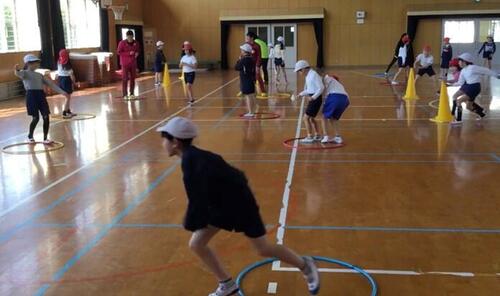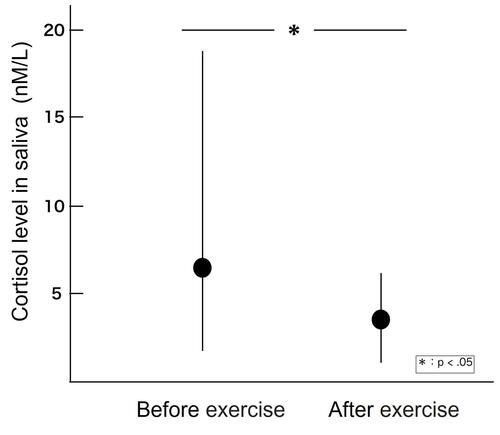News
No.2 Students from the Sports Science Department Support Elementary School Physical Education Lessons
Leader:Masahiro Inui(Professor of Faculty of Sports and Health Science)
Yoshio Izuhara / Masahiro Inui
A study that verified the psychological effects of coordination training was published in Neurological Therapeutics (Vol. 38-3). Click here to read the study.
The study verified the stress reduction effects of coordination exercise on 18 fourth-grade students in Fukuoka City.
We instructed the children to do the approximately 40-minute coordination exercise (rhythm-based coordination exercise) program we had specially designed for them, including type and order of the exercises.
(Photo 1: Children in the research lesson)
In order to determine the stress reduction effects, we measured their cortisol levels in saliva before and after the exercise.
The measurements indicated significantly lower cortisol levels in saliva after the coordination exercise than before the exercise (see Figure 1 and Table 1).
(Figure 1: Changes in stress level before and after the exercise)
(Table 1: Results from before and after the coordination exercise)
The study demonstrated that rhythm-based coordination training involving low-intensity, low-load exercise contributes to reducing fatigue and mental stress.
Going forward, we plan to study coordination exercise from various angles, including verifying the effects of different themed coordination exercises revolving around balance, response, and spacing challenges that stimulate sense of direction, as well as determining whether the gender difference leads to different effects.
*Figure 1 and Table 1 are cited from Neurological Therapeutics (Vol. 38-3, pp. 240-243).




